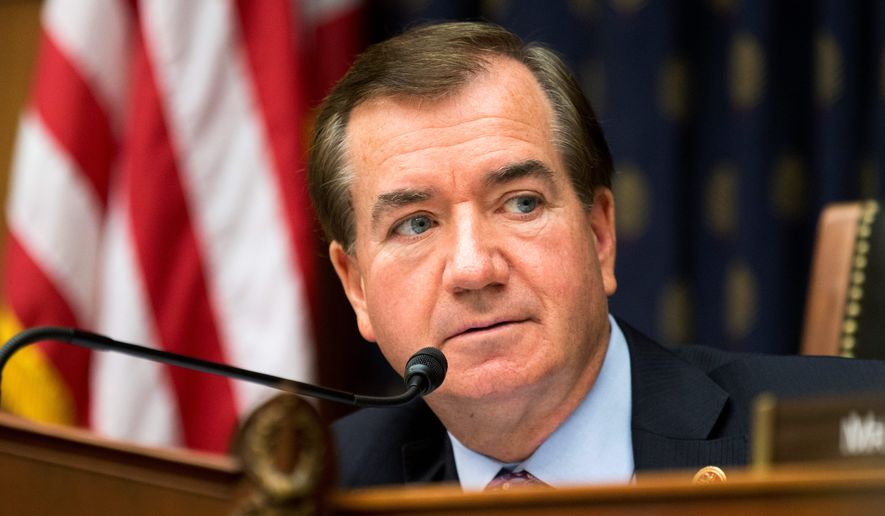Taking the first steps to try to scuttle the Iran nuclear agreement, the House approved a bill Thursday that would block President Obama from lifting sanctions on Tehran until the regime makes billions of dollars in court-ordered payments to American victims of state-sponsored terrorism.
Mr. Obama has vowed to veto the bill, saying it would ruin his efforts to carry out the pact brokered by the U.S., Iran and five leading nations to delay the Islamic republic’s push to acquire an atomic bomb in exchange for relief from international sanctions.
A handful of Democrats joined Republicans to defy Mr. Obama’s veto, passing the bill on a 251-173 vote as backers said it sent a signal about priorities.
“Should Iran receive United States sanctions relief before it pays the victims of its terrorism all of what U.S. courts say those victims are owed? I say no. Not one cent,” said the bill’s sponsor, Rep. Patrick Meehan, Pennsylvania Republican.
Dubbed the Justice for Victims of Iranian Terrorism Act, the bill likely will die in the Senate, where Democrats last month filibustered three attempts to reject the underlying nuclear deal, leaving Mr. Obama a free hand to begin implementing it.
Wednesday’s vote followed Israeli Prime Minister Benjamin Netanyahu’s fierce condemnation of the nuclear deal in a speech to the U.N. General Assembly, where he said it would promote war instead of peace.
“When bad behavior is rewarded, it only gets worse,” he said.
Mr. Netanyahu’s speech also coincided with the Supreme Court’s decision Wednesday to take up an appeal from the central bank of Iran, which is contesting a U.S. court order to distribute $1.75 billion in assets to victims of the 1983 bombing that killed 241 U.S. service members at a Marine barracks in Beirut.
The attack was attributed to the Iran-backed Hezbollah terrorist group.
All told, Republican lawmakers said Iran owes $46 billion to American victims of the Beirut bombing and a range of suicide attacks in Israel and elsewhere.
The damages are spread out over 80-plus cases brought from 2000 through 2015 under the Foreign Sovereign Immunities Act, which lets victims of state-sponsored terrorism seek damages through U.S. courts.
As part of the Iran deal, Tehran is supposed to get access to tens of billions of dollars in assets frozen in banks around the globe.
Democrats said the House bill would prevent Iran from being able to get that money, which means it would not be able to pay what it owes to victims of terrorism. The regime has only $20 billion on hand, they said.
“It’s a Catch-22. And who does it hurt? Not Iran, but the victims,” said Rep. Eliot L. Engel, a New York Democrat who opposed Mr. Obama’s nuclear deal but backed the president in this latest vote.
While 25 Democrats joined every Republican in opposing the Iran deal last month, the compensation bill drew support from just 10 Democrats after the administration warned members not to back it.
Republicans, citing recent reports, argue that if Iran has $20 billion to spend on Russian aircraft and billions more to prop up Hezbollah and the Assad regime in Syria, then it has the cash to compensate terrorism victims before sanctions are lifted.
The White House agreed that victims deserved their money but said it shouldn’t be used to unravel the nuclear deal.
“The administration has consistently made clear that the purpose of the nuclear negotiations, and ultimately the [deal], was to address one issue only — the international community’s concerns over Iran’s nuclear program and the need to verifiably prevent Iran from acquiring a nuclear weapon,” the Office of Management and Budget said in a statement of administration policy.
Congress was unable to stop the Iran deal after Republicans failed to overcome a Democratic filibuster in the Senate.
Lawmakers now are searching for ways to toughen monitoring, have sanctions ready if Iran is deemed to be in violation and offer assistance to Israel if it is threatened by Iran.
House Republicans, meanwhile, have hinted at legal action against Mr. Obama, saying he violated the law by not turning over two secret side agreements to the Iran deal, struck between Tehran and the International Atomic Energy Agency.
Lawmakers said Wednesday that the idea remains in limbo. House Speaker John A. Boehner, Ohio Republican, is set to resign Oct. 30, leaving the caucus in disarray as it tries to settle on a new leadership team.
Rep. Duncan Hunter, California Republican; Rep. Adam Kinzinger, Illinois Republican; and Ryan K. Zinke, Montana Republican, have proposed legislation to preapprove military action if Iran violates a provision in the agreement to “never seek, develop or acquire a nuclear weapon.” All three congressmen are military veterans.
Mr. Kinzinger called Wednesday’s compensation bill “pretty powerful,” although he couldn’t say whether his bill or any others will be up for a vote soon.
“I’d love to do more on it,” he said.
• Tom Howell Jr. can be reached at thowell@washingtontimes.com.




Please read our comment policy before commenting.